#Head and Neck Cancer
Explore tagged Tumblr posts
Text
I was not prepared for this.

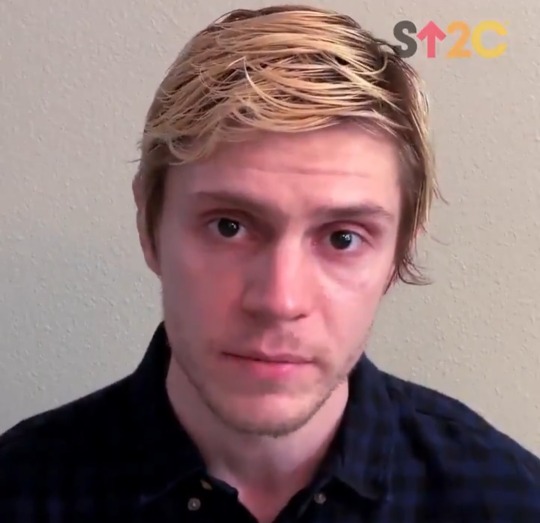
25 notes
·
View notes
Text
I have Cancer
I always forget to post to Tumblr despite how much I love the app. I have a lot of old friends only here and I'm sorry this is how you have to find out.
I have theoat cancer. I finally start Chemo on the 19th, I'll have at least one tooth pulled this week to avoid infection during or even worse, necrosis of the jaw.
Im very tired. Ive been so physically tired for several months now, like, I can barely function some days tired.
Im having 7 weeks of chemo + radiation. It's an hour away because the doctors closest to me aren't as great.
So here we are.
If you'd like to support me I have a wishlist of soft comfy things, stuff to do, books to read for during chemo and while I'm segregated in the guest room. Or maybe share this, I'm a paleo artist and I make cool stuff. Thylacine art attached.
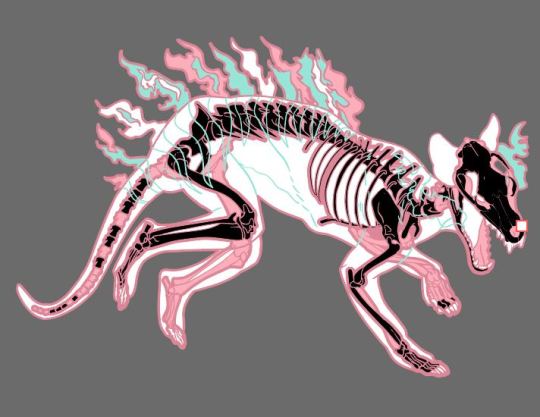
10 notes
·
View notes
Text

https://gofund.me/df9621bb ANYTHING HELPS
8 notes
·
View notes
Text
Hope in the midst of winter
Week 4 homework---My Healing Story Abdul and his silver van pulled up along the street in front of my house on that Wednesday morning. The typical Minnesota weather was chilly and the winds were strong. I was running late as usual, so I parked my car behind his and ran to open the sliding door. It had been several months since I had seen the man who drove me to Mayo Clinic for almost all of my thirty radiation treatments. Two months to be exact. After spending three hours a day with him for six weeks, he became familiar. A friend. I had missed our chats while cruising along Highway 52. The drive became a source of comfort and predictability during such unpredictable days. We would go north to 36th Street, then turn onto 35W. I could close my eyes and open them any amount of time later and know exactly where in the journey we were. Cannon Falls was halfway. Zumbrota was where I would take my anti-anxiety meds to keep me from panicking about my radiation mask being bolted to the table. It had been almost exactly a year since I first felt those tiny lumps on the left side of my neck. I had a cold, so I knew that could be causing my lymph nodes to swell up. But I was also all too familiar with cancerous lymph nodes as well. For the previous eight years I had fought battle after battle with this nemesis that wouldn't let me go. Diagnosis after diagnosis. Surgeries, toxic drugs, and radiation. I often wondered what it would be like to respond to an inquiry of "what's new?" without answering about my latest cancer treatment. Cancer was my world. A world I never had expected to be a part of, but who does expect to be that one in three to receive a cancer diagnosis in their lifetime? My parents had taken my son and I out to see a musical, "Rudolph, the Red-Nosed Reindeer." I remember palpating those nodes through most of the performance, not recalling anything else from that evening except the email from my doctor in Minnesota. I had reached out to his nurse to get her opinion on the swelling in my neck, hoping for an unconcerned reply back. Surely I was worried about nothing. The paranoia of a recurrence held me in its grasp, causing me to fear the slightest change in my body. The bumps had to be due to my recent cold...right? I wanted that validation more than anything. I didn't get it. My doctor was concerned. "Make an appointment with your doctor in North Carolina while you are there for the holidays", he said. "I will see you when you get back." I mistakenly read the email right before the curtain went up to reveal Sam the Snowman. The rest of the evening past as though I was caught in my own blizzard. The first doctor. The second. The first biopsy. The second. They all confirmed the existence of cancerous cells infiltrating my neck. Early February found me signing on for a clinical trial in hopes that this might be the answer we had been waiting on for eight years. By May, the clinical trial failed me. Or I failed it. The results were devastating. I begged my doctor to perform surgery on me. I wanted the cancer gone. Take it all, I told him. I don't care about quality of life. I just wanted to stay alive. On a June day, my mother and I went to the hospital for this life-extending surgery, only to have the doctor change his mind right before we went into the operating room. He felt it was too risky. I felt like I might melt into a puddle of tears on the cold pre-op floor. I couldn't accept his decision. I wasn't ready to give up. I wasn't ready to plan my funeral. I wasn't ready for my best friend to adopt my son. I wasn't ready to say good-bye. I sought out a surgeon at Mayo, and was giddy upon hearing that he would perform the surgery. There were huge risks, but I was ready to take them on. How could I not? I woke up from the surgery and heard the word, "successful," but the doctors wanted me to continue fighting. "Chemotherapy and radiation will be your best chance to make sure that we get rid of any remaining cancer cells," they explained. I, of course, knew this already. Didn't I often joke about practically being an oncologist myself by this point? Obviously I would take on additional treatment. The next few months were filled with pain and more pain. Chemotherapy lead to low blood counts which lead to blood transfusion after blood transfusion. The radiation burned the tender skin of my neck and jaw. All I could do was pray that it was also burning those rogue cancer cells left behind. Day after day we would drive to Mayo Clinic for treatment. And Lord-willing, healing. People all over the country were praying for me, just as they had been for the past fights. I received cards, letters, emails, texts, sharing that people were thinking of me and begging God to heal me from this disease. My faith had begun waning by this point. Was it worth asking God for healing? Did He care? If He did care, why was he allowing this to happen again and again? It didn't add up. It felt cruel. This God, whom I had been taught about since birth, didn't seem as loving as He was supposed to be. I felt foolish asking Him for healing. I had already been let down so many times before. The doctors scheduled my follow up scan for about two months after my last day of radiation. As Abdul and I rode down to Rochester, I shared how nervous I was for the day. I still had considerable pain in my neck and jaw and expected that the scan would show a tiny mass, growing slowly in my neck. I didn't allow myself to think about the possibility of being cancer-free. It was too hopeful. I wasn't ready to allow myself that. The morning was filled with a CT scan and MRI. I was able to meet up with some new friends while I waited to see my surgeon later that afternoon. We had met only weeks before in New York City while they hosted a trip for families with a parent that is facing a terminal illness. These friends were new, but had so much understanding of what my life was truly like. They knew the fears, the emotions, the agony of trying to parent while carrying the weight of cancer. We huddled around a table at Starbucks, in out of the blustery wind that chilled down to our bones. After a bit of small talk, one brought up the heavy news. One of the mothers that had attended our trip to New York City had passed away just days after returning home. It was completely heart-breaking. She left behind a seven year-old daughter and a four year-old son that my boy had played with while there. I knew that it could have just as easily been me. Everyone has a different story, but who was to say that mine wouldn't end that way? And soon? Was this just mentally preparing me for the bad news I was about to receive from the doctor? And then it was time. I walked towards the tall, looming building, and pushed the revolving door to enter. The elevator slowly took me up to the 12th floor, and I announced my arrival to the front desk. I can't remember how long I waited. It could have been one minute or one hour. And I don't remember walking back to the room or waiting for the doctor. All I remember are these words: the scans don't show any cancer. We drove back to Minneapolis that day, and I could feel the new chapter start. The familiar roads and landmarks were brand new. It was as though I was looking at them with new glasses on, seeing them in a new way. The healing that I had so desperately longed for had come. My world was now tinted with hope.
7 notes
·
View notes
Text
Having cancer has completely changed my life
And it’s not something you could even come close to understanding until you actually have it yourself. What makes it even harder for me is not only the fact that head and neck cancers are already uncommon as it is, but that my form of cancer is not even characteristic of its diagnosis, making it that much more rare. It’s been a long, drawn out process that started last October. Since then I’ve been faced with entirely too many scary scenarios, and I’ve surprised myself with strength and positivity that I had no clue I ever had in me. When I found out the tumor really was cancer, I got the fuck over how I looked. You figure out what actually matters in life when you go into surgery not knowing the outcome and you wake up to facial paralysis. Happiness and health were all that mattered to me. Though now that I’ve completed my six and a half weeks of radiation and chemo, I feel myself starting to slip away. From extreme fatigue, hair loss, permanent hearing loss, alarmingly fast weight loss, and losing all of my tastebuds making it almost impossible to eat, demanding they give me a feeding tube (thank baby jesus for my pal the feeding tube)…it can get overwhelming. The amount of radiation I’ve received is more than anyone should get in a lifetime. Most people who receive my treatment are in their last chapters of life. They’re getting years shaved off of their lives - lives that have already been lived. But I’m 21. I’m in the first chapters of my life. I feel as if I’m just now learning to crawl.
My cancer is extremely aggressive. There’s a 50% chance of recurrence, which won’t return locally but distantly in my lungs, my liver, or my brain. I have a very high chance of needing a jaw replacement down the road from radiation. The chemo affects my fertility, and I may not be able to have kids. I don’t know if I’ll ever get my taste back. I worry I will have to have a feeding tube for …I don’t even know how long. I have to avoid the sun for the rest of my life. I don’t hear music like I did before. Before I got the diagnosis I was getting ready to go back to school and finish my music degree …but my cello and cello case got taken away from me. I don’t know what I’m doing next. I don’t know if I’ll go back to working full time at Estée Lauder. I don’t fucking know. All I know is that I can’t keep going like this.
Last May, I was just getting out of a pretty toxic relationship, and my eyes were opened to everything I hated about myself. I promised myself I’d change anything I was unhappy with and try to be the best version of myself. I took back control of my life and became the person I’ve always wanted to be.
But that all went out the window when I put my life on hold for my treatments. The drugs that I’m on to protect my fertility are totally affecting me hormonally. I can feel myself slipping back into my old ways. I’m seeing a resemblance to the Tessa I said goodbye to last May.
Cancer has completely changed my life, but I’m not gonna let it ruin it. It’s gonna be a harder life, but it could always be worse. Today I take my life back :3 All you got is today. Make it count~
I don’t know if any of my followers have cancer or are going through radiation or chemo or not, but if you are and need someone to talk to, I’m all ears. I didn’t talk about my cancer at all on social media because I wanted to be strong and I didn’t want any pity, but no one should go through this alone.
#cancer#head and neck cancer#myoepithelial carcinoma#head and neck radiation#chemo#peg tube#feeding tube#just keep swimming#personal
7 notes
·
View notes
Text
Free CME Webinar on the Evolving Therapeutic Management of Head and Neck Cancer
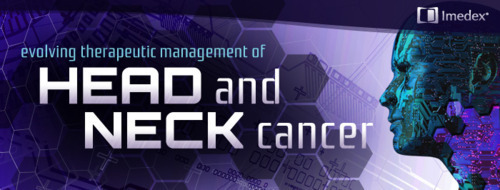
Online Oncology CME: Evolving Therapeutic Management of Head and Neck Cancer Webinar on October 24, 2011 at 06:00 PM Eastern Time
Join Dr. Robert Haddad and his guests, Drs. David Brizel and Merrill Kies for a live webinar where they will explore the latest data on the use of EGFR-inhibitors with induction therapy, integration of EGFR-inhibitors with radiation and/or chemotherapy, and the use of HPV screening to help guide treatment decisions.
Agenda:
Presentation of interactive challenging cases
Should the role of induction therapy be revisited?
Current therapeutic options for the HPV +/- patient
Integration of EGFR inhibitors with radiation/chemoradiation
Panel discussion and Q&A
For more information and registration please visit: http://headandneckcancerwebinars.com/
#oncology cme#oncology#head and neck cancer#treatment#Dr.#Dr. David Brizel#Dr. Merrill#EGFR-Inhibitors#Radiation & Chemotherapy#Chemotherapy Radiation#physican#doctor#patient#nurse#surgeon#oncologist
7 notes
·
View notes
Text
Overview of Head and Neck Cancer:
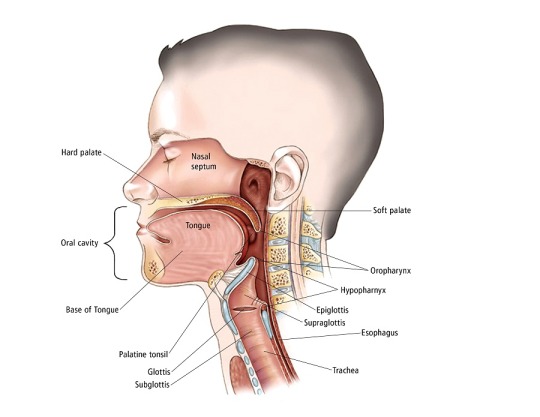
Cancers of the Mouth (oral cancers) and throat, as well as cancers of the nose, sinuses, salivary glands, and middle ear, are all examples of head and neck cancers. The Best Head and Neck Cancer Specialist in Pune is Dr. Vidita Powle.
Cancer of the Mouth (ORAL CANCERS):
The mouth is the most common site for the development of head and neck cancer. The tongue, the floor of the mouth (under the tongue), the inside of the cheek out, the roof of the mouth (the hard palate), the area behind the wisdom teeth, or the gum can all develop mouth cancer.
Cancer of the Throat and Cancer of the VoiceBox
Doctors give many names to different parts of the throat and the tumours that might form there, and the Voice Box is the second most common site for head and neck cancer. More information on voice box cancer is available.
Salivary Gland Cancer (CANCER OF THE SALIVARY GLANDS):
Saliva is produced by salivary glands, which keeps the mouth wet. Salivary glands are divided into three groups:
• Parotid glands – located immediately in front of the ears on each side of the face
• Submandibular glands - located beneath the jawbone on both sides
• Sublingual glands - located beneath the mouth's floor and on either side of the tongue.
2 notes
·
View notes
Text
A small update:
I've gone through 7 weeks of chemotherapy and 35 sessions of radiation.
My outlook is good but we won't know for three months. The side effects are the worst. My hearing is a constant ring, I can't eat solid food, I vomit several times a day, cough until I can't breathe, I'm lethargic, losing my hair....it's a lot and so much more.
But I should live C,:
2 notes
·
View notes
Text
Head and Neck Cancer Awareness Ribbon Soft Fleece and Throw Blankets
Head and Neck Cancer Awareness Ribbon Soft Fleece and Throw Blankets #headandneckcancer
Art features the burgundy and ivory awareness ribbon art meaning to show support for head and neck cancer including ivory and burgundy cancer awareness ribbon angels. Make custom cancer awareness fleece blankets for yourself or as a gift for a loved one. Add your own words or images to this soft blanket for special awareness ribbon cancer gifts. April is Head and Neck Cancers Awareness…
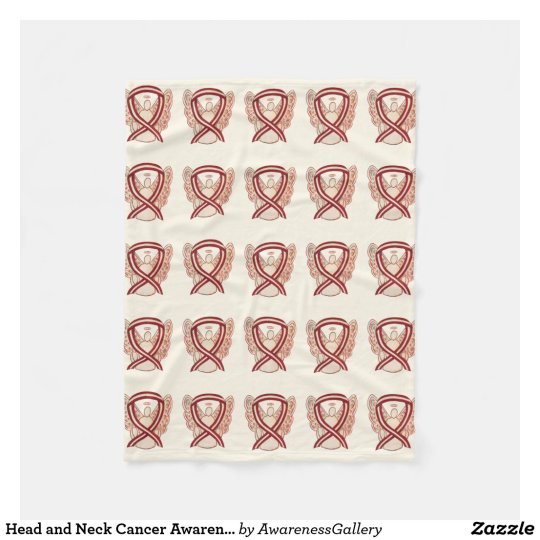
View On WordPress
#head and neck cancer#head and neck cancer awareness#head and neck cancer awareness month#head and neck cancer awareness products#head and neck cancer awareness ribbon#head and neck cancer awareness ribbon pins#head and neck cancer awareness ribbons#head and neck cancer ribbon#head and neck cancer ribbon blanket#head and neck cancer ribbon blankets#head and neck cancer ribbon images#head and neck cancer ribbon quilt
2 notes
·
View notes
Photo

Lung cancer is one of the leading cause of cancer death in the United States. According to a survey In 2016, there are more than 224,000 Americans will be diagnosed with Lung cancer according to the American Cancer Society. Despite its prevalence, many people who have cancer feel alone. cancer center Los Angeles provide you the best lung cancer treatment at a very affordable price and didn't make you feel alone.
2 notes
·
View notes
Conversation
IM SO FUCKING HAPPY
i got the results back from pathology today and although the tumour was definitely acinic cell carcinoma, they got all or at least vast monitory of the fucker out !!!! and i dnt need any radiotherapy like literally all my treatment is done other than a load of routine scans to make sure the margin he left won't grow back !!!!!!!!! I AM SO HAPPY
#fuck YES#happy#acinic cell carcinoma#head and neck cancer#head and neck cancer awareness#oh my god#I dnt even know what to say#radiotherapy#parotidectomy#pathology#surgery#oncology#HECK YEAH#tumour#cancer of the parotid gland#teenage cancer
2 notes
·
View notes
Link
Free CME webinar on the evolving therapeutic management of head and neck cancer »
LIVE | October 24, 2011 | 6:00 p.m. EST
Join Dr. Robert Haddad and his guests, Drs. David Brizel and Merrill Kies for a live webinar where they will explore the latest data on the use of EGFR-inhibitors with induction therapy, integration of EGFR-inhibitors with radiation and/or chemotherapy, and the use of HPV screening to help guide treatment decisions.
Agenda:
Presentation of interactive challenging cases
Should the role of induction therapy be revisited?
Current therapeutic options for the HPV +/- patient
Integration of EGFR inhibitors with radiation/chemoradiation
Panel discussion and Q&A
6 notes
·
View notes
Photo
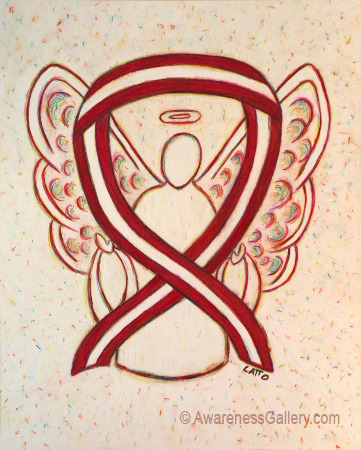
Head & Neck cancer uses a burgundy & ivory awareness ribbon for its cause. Art features a Head and Neck Cancer Awareness Angel Art Painting. Cancer can occur in multiple ares including the lip, oral cavity (mouth), nasal cavity (inside the nose), paranasal sinuses, pharynx (pharyngeal), throat, and larynx (laryngeal).
#head cancer#neck cancer#head and neck#head and neck cancer#head and neck cancer awareness#head and neck cancer ribbon#head and neck cancer awareness ribbon#oral cancer#oral cancer ribbon#oral cancer awareness#oral cancer awareness ribbon#throat cancer#throat cancer ribbon#throat cancer awareness#throat cancer awareness ribbon#larynx cancer#laryngeal cancer#cancer angel#cancer awareness#cancer ribbon#cancer ribbons#cancer awareness ribbons
2 notes
·
View notes
Text
Early FDG PET at 10 or 20 Gy under chemoradiotherapy is prognostic for locoregional control and overall survival in patient with head and neck cancer
An early assessment of therapy response in patients with head and neck squamous cell carcinoma (HNSCC) might allow for a timely modification of treatment. Hentschel et al conducted a prospective study to investigate the optimal timing for FDG PET/CT imaging during chemoradiotherapy (CRT) and the most appropriate PET-parameter.
37 patients underwent serial FDG PET/CT scans at baseline (0 Gy) and three times during CRT. SUVmax, SUVmean and PET-based GTV were determined. It was found that a decrease in SUVmax ≥50% after two weeks of therapy was predictive for a higher 2-year overall survival (OS; 88% vs. 38%) and disease free survival (DFS; 75% vs. 31%). Similar results were found using SUVmean. PET-based GTV was determined automatically by a software on a source to background ratio. This approach proofed to be inappropriate for measuring tumor volume during CRT due to a high rate of falsely large GTV. However an initial PET GTV of <10.2 ml was predictive for a higher 2-year OS (83% vs. 34%).
Article via Pubmed
FWal
2 notes
·
View notes
Link
Dr. Eric Genden, head and neck surgeon at the Mount Sinai Medical Center in New York City, has seen his practice change dramatically over the past decade. “My waiting room used to be filled with smokers and drinkers, blue-collar workers,” recalls Genden. “Now it’s filled with professionals who were never smokers or drinkers.” This “new set of patients” is presenting with head and neck cancer, particularly in the tonsils and at the base of the tongue, at a younger age than the hard-living seniors.
2 notes
·
View notes
Text
Head and Neck Cancer Surgery: Understanding the Treatment Options
Introduction
When it comes to the diagnosis and treatment of head and neck cancer, surgery plays a vital role in achieving successful outcomes. Head and neck cancer refers to a group of tumors that develop in the areas of the head and neck, including the mouth, throat, voice box, and nasal cavity. This article will delve into the various aspects of head and neck cancer surgery, including the treatment options available and the importance of early detection.
The Importance of Early Detection
Early detection is key to improving the prognosis and survival rates of patients with head and neck cancer. It allows for timely intervention and more effective treatment options. Regular self-examinations of the head and neck area, along with routine visits to a healthcare professional, can help in the early identification of any abnormalities or signs of cancer. It is vital for individuals to be aware of the common symptoms associated with head and neck cancer, such as persistent sore throat, difficulty swallowing, and a lump in the neck. Prompt medical attention should be sought if any of these symptoms are noticed.
Treatment Options for Head and Neck Cancer
Surgery Surgery is often a primary treatment option for localized head and neck cancers. It involves the removal of the tumor and potentially affected adjacent tissues. The specific surgical approach depends on various factors, including the location and size of the tumor. Common types of head and neck cancer surgeries include:
Laryngectomy: This procedure involves the removal of the voice box (larynx) and is performed when cancer affects the larynx.
Tonsillectomy: Tonsillectomy is the removal of the tonsils and is commonly performed for tonsil cancer.
Maxillectomy: Maxillectomy is a surgery that involves the removal of all or part of the maxilla (upper jawbone) and is performed for certain types of nasal and oral cavity cancers.
Neck dissection: Neck dissection is a procedure that involves the removal of lymph nodes in the neck to determine if the cancer has spread to the lymphatic system.
Reconstructive surgery: In cases where extensive tissue removal is necessary, reconstructive surgery may be performed to restore the affected area's function and appearance.
Radiation Therapy Radiation therapy may be used alone or in combination with surgery for the treatment of head and neck cancer. It involves using high-energy radiation beams to destroy cancer cells and shrink tumors. Radiation therapy is often recommended after surgery to eliminate any remaining cancer cells and reduce the risk of recurrence.
Chemotherapy Chemotherapy uses medications to kill cancer cells throughout the body. It is typically used in cases where the cancer has spread beyond the head and neck region. Chemotherapy may be administered before surgery to shrink tumors, after surgery to eliminate remaining cancer cells, or as the primary treatment for advanced or recurrent head and neck cancer.
The Role of Head and Neck Cancer Surgeons
Head and neck cancer surgery requires the expertise and skills of highly trained surgeons. These surgeons have extensive knowledge in the management of complex head and neck anatomy and are well-versed in the latest surgical techniques. They work closely with a multidisciplinary team, including radiation oncologists, medical oncologists, and speech therapists, to develop a comprehensive treatment plan tailored to each patient's needs. The experience and expertise of head and neck cancer surgeons allow for precise and targeted tumor removal while preserving nearby structures critical for vital functions such as breathing, speaking, and swallowing. The surgical goal is not only to eradicate the cancer but also to ensure the patients' quality of life is maintained post-surgery.
Conclusion
Head and neck cancer surgery is a critical component of the overall treatment strategy for patients diagnosed with head and neck cancer. Understanding the importance of early detection, along with the various treatment options available, empowers individuals to seek medical attention promptly. The expertise and skill of head and neck cancer surgeons ensure that patients receive optimal care and the best possible outcomes. Remember, early detection saves lives, so be proactive and stay informed about the signs and symptoms of head and neck cancer. Your health is in your hands!
1 note
·
View note